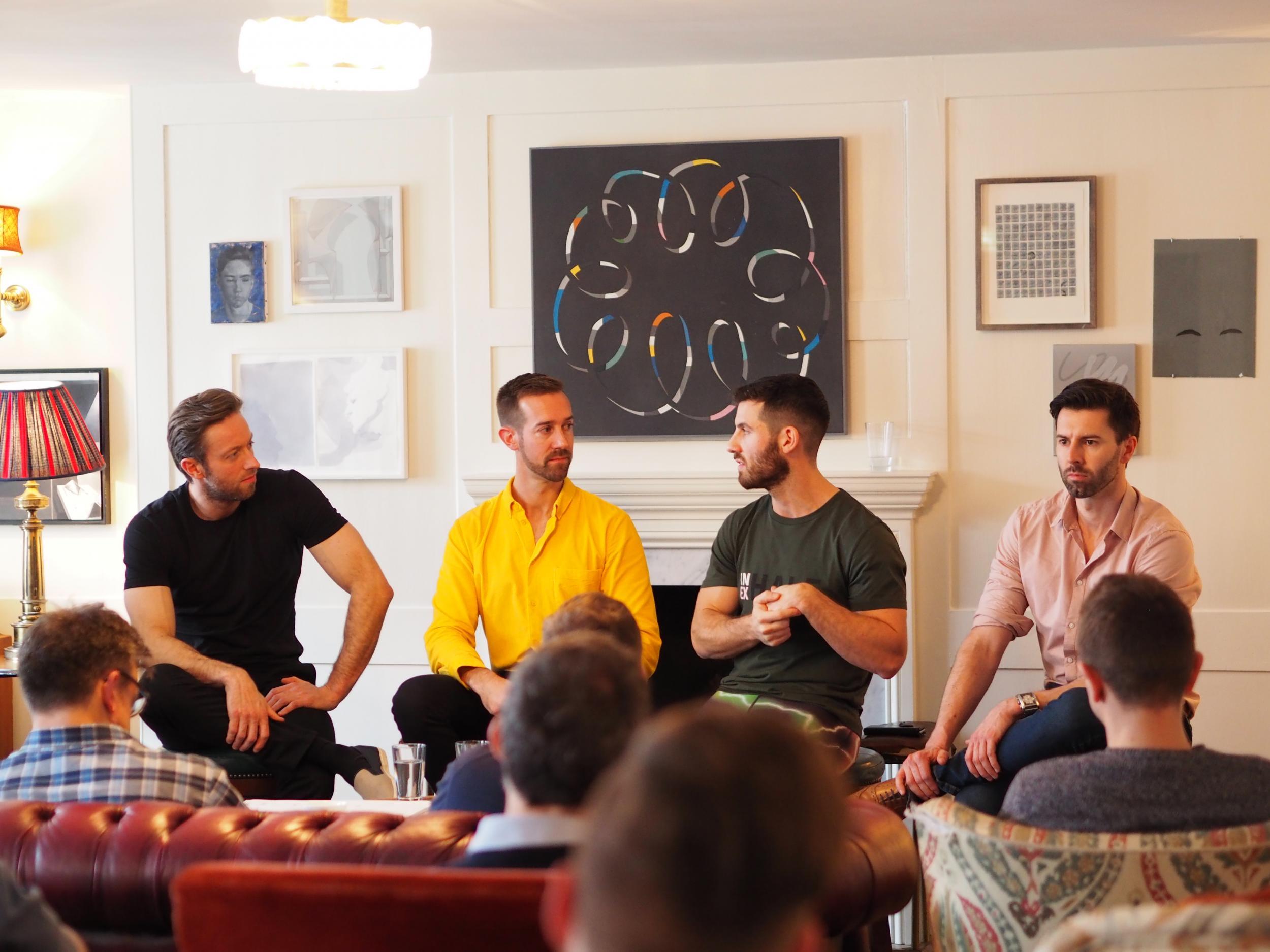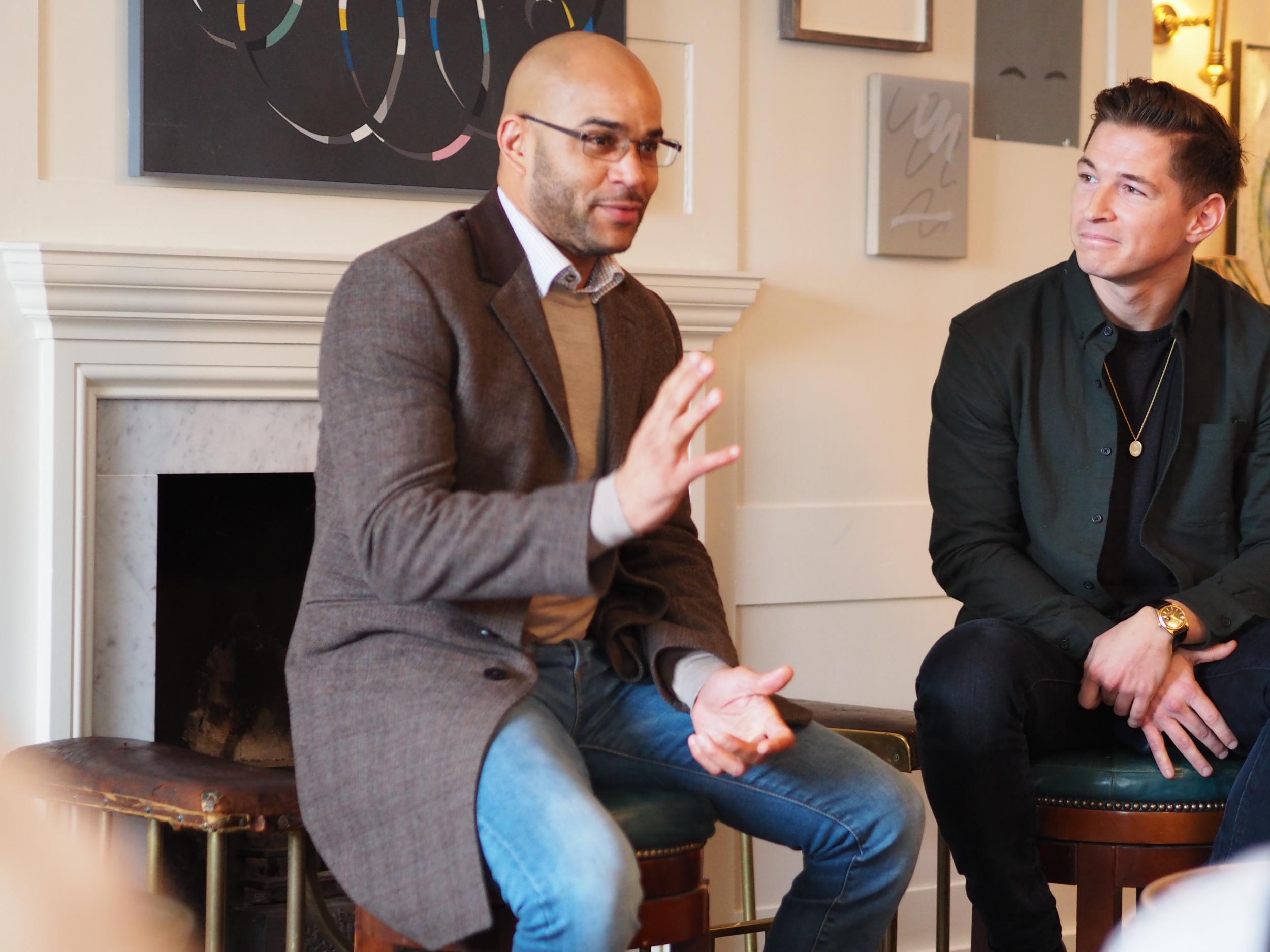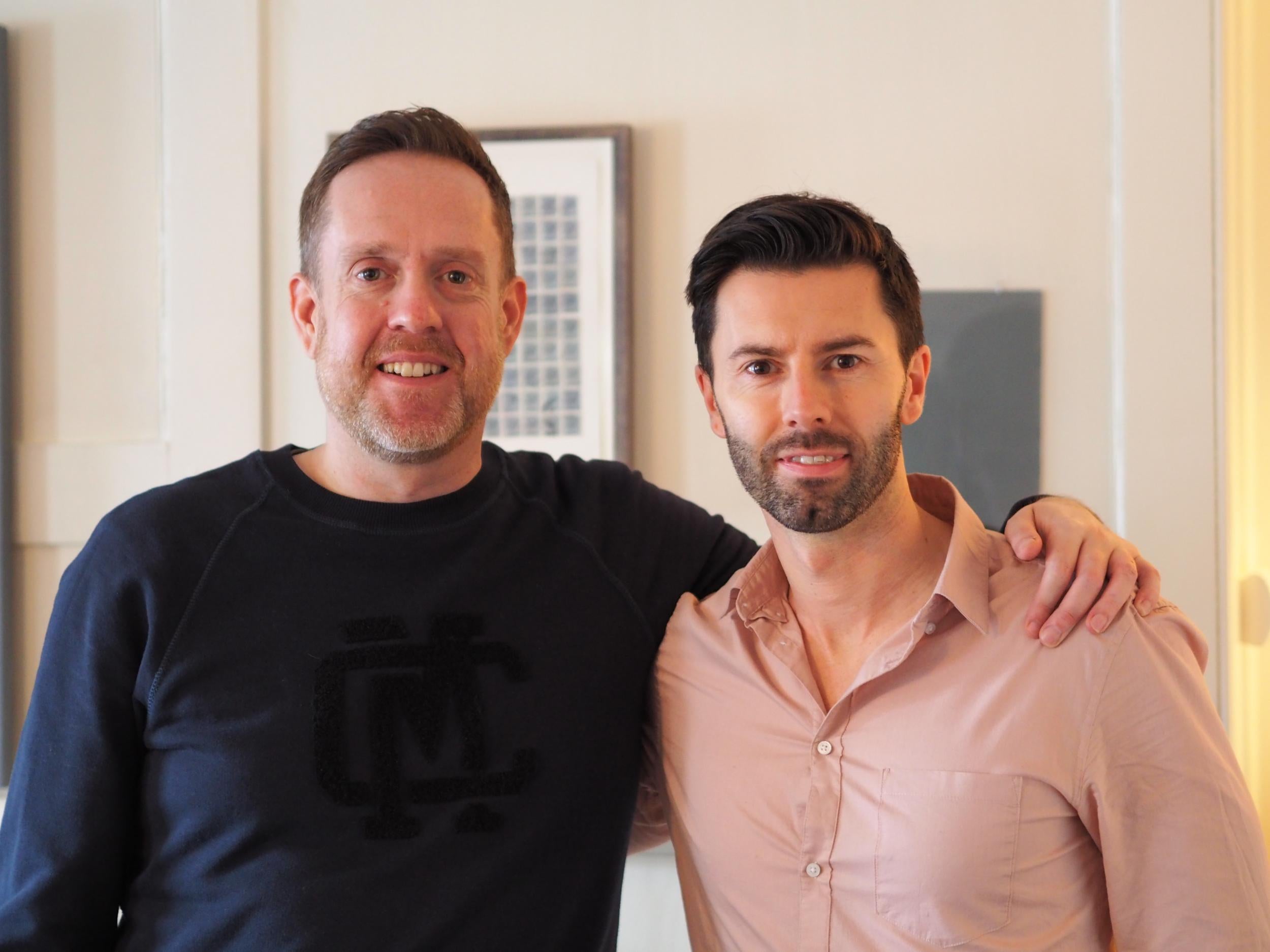The Whole Man Academy: Where men meet to talk about their feelings
Amid the chaos of modern life, men still aren’t talking enough about their mental health and the pressures upon them - a new event aims to change that


It’s a Saturday morning in central London, and a group of men are gathering over coffee and doughnuts to discuss what it means to be a man.
The Whole Man Academy offers an informal environment in which men from all walks of life can come together to share their experiences. Covering everything from mental health and physical wellbeing, to relationships and life goals, it aims to discuss the role of men in a world where the expectations placed upon them are shifting.
The project is the brainchild of journalist Matthew Shaw, 46, and lifestyle coach Anthony Astbury, 40. The pair are old friends, but after noticing a shared interest in men’s issues on each other’s Facebook pages, they decided to forge a new partnership, and quickly organised the first ever Whole Man Academy event at the end of 2018.
“Firstly it’s about learning from other men,” says Shaw. “At the first event we had an 18 year old who came, and he said that he’d never been in a room with so many men of different ages and different experiences, and that was really enlightening for us. Here’s someone at the very beginning of finding out what kind of man he wants to be, and this is a great place for it.”
Indeed, I’ve no sooner settled into one of the comfy armchairs scattered around the room before we’re making introductions, and I find myself opening up to a young student and an older university lecturer – both of whom have learned about the event through social media.
The Whole Man Academy hopes to draw men in not just through the prospect of talking with their peers, but with guest speakers. Today it’s the turn of former Premiership footballer and boxer Leon McKenzie. With refreshing honesty, he speaks about how he was thrust into the sporting limelight in his mid teens, before going through a rollercoaster career of highs and lows for which he was mentally unprepared.
“As men we tend to bottle things up,” says McKenzie. “We just try and get on with it. But sometimes it gets to a stage where we just crash. We’re all great actors as men. We pretend everything is great, but it’s about being real when you’re doing great and also being real when you’re not great. You should be able to say, ‘You know what? I’m having a bad day today.’”
MacKenzie traces his troubles – including marital breakdown, a stint in prison, and an attempted suicide – back to injuries which threatened the career on which he had built his self-worth. This opened an enlightening conversation about the importance of extracting your personal worth and contentment from your profession.

While there is an emphasis on mental health at the Academy, the organisers want to impress that’s it’s really more accurate to describe it as mental strength. This is about equipping men with the skills they need to tackle a range of issues in their lives, even before they actually experience them. It’s also about being able to help others.
“I worked in the city, under real pressure,” says Astbury, “and it was a pretty toxic environment. I had a colleague who had a breakdown, and if people had known the signs, or had any sort of training, they could have done something, he could have had someone to go and speak to. More and more workplaces are introducing wellbeing awareness, and that’s great.”
With the concept of toxic masculinity permeating media discourse in recent months, a lot of men feel there’s a discussion being had about them, rather than one in which they are participating. It’s evident through the discussions here that tackling the more negative elements of male identity should be seen as something which will help men relieve some of the historic burdens placed upon them.
During a break in the day, I chat to some of the other guys about what has brought them to the event. Jonathan Downes, 47, has travelled a few hours to get into London this morning. “I don’t come with too many expectations,” he says. “What I like is the opportunity to talk, to reflect, to meet new people, have interesting conversations, it’s a topic that I’m passionate about. I find it useful and helpful.”

Chris Robinson, 36, was impressed by the mix of people who had turned up. “One of the things that struck me was the honesty of some people, even when we just arrived in the coffee area, one guy was very open with me about his mental health struggles, and how it affected him. We don’t know each other, we’re probably from quite different backgrounds, he’s straight, I’m gay – I just didn’t expect that.”
The mix of sexualities is something that was important to the organisers too. “I’m gay and Anthony is straight,” says Shaw, “but gay men and straight men are actually more similar than you’d think. We both go out and drink with our mates, we laugh and banter, but we don’t really discuss things on a deeper level. Basically we’re all in one big mess.”
“More gay men are getting married, having children, settling down, and experiencing some of the same issues that straight men have been experiencing for hundreds of years. Also I think in terms of relating to women in today’s society, there’s a lot we can learn from each other.”
Across the rest of the day, there are various mini talks and activities, including one man’s remarkable testimony about saving his own father’s life, and how he has found various foods can help deal with depression. We’re also invited to draw a visual of how we imagine our mental health, which primarily served to remind me of how terrible I am at drawing.
Going forward, the goal is to break out beyond the boundaries of London. “We want to take this around the country,” says Astbury, “maybe take it over to New York. We want this to be something you can put into your life that is enjoyable, like after work drinks or going to the gym, rather than something really serious. We want guys to feel it’s somewhere they belong.”
Follow the Whole Man Academy on social media for information about the next event.
Join our commenting forum
Join thought-provoking conversations, follow other Independent readers and see their replies
Comments
Bookmark popover
Removed from bookmarks